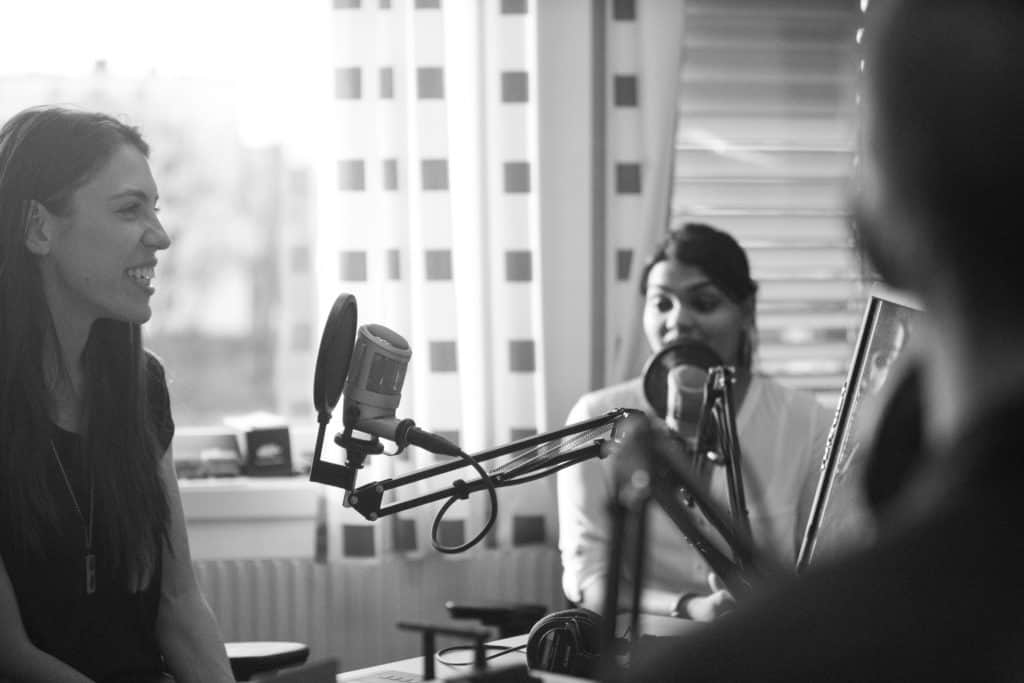Podcast Music
Where To Start
Music is one of the most powerful forms of art. Bands, singers, and even film scores have changed millions of lives throughout history. But, music also has its place in smaller-scale productions. Podcasts benefit greatly from having music for their intros and outros. Background music is also a popular addition that helps contribute to and maintain a specific atmosphere. Not everyone has the skills to create their own music, though, which is where music licensing comes into play.
Not sure where to start? Don’t worry, we’ve got you covered. Let’s take a look at everything you need to know about music licensing for podcasts.
Why Do I Need a License?
Creative works by musicians are copyrighted in order to protect their composition from being stolen or used in an otherwise illicit manor. For example, you don’t have to take a song from an artist and release it as your own song for it to infringe on someone’s copyright.
Using an artist’s song as background music in order to promote your own work (or even using it at all) could result in legal complications. This is where licensing comes into play. This process essentially trades usage rights for a fee that’s paid to the copyright holder. There are many different ‘tiers’ when it comes to licensing, and the one that’s right for you will heavily depend on what you intend to use the creative work for.

What Types of Licenses Are There?
In theory, there could be an infinite number of different license agreements when it comes to getting permission to use copyrighted work. Variables here include the duration of use, how long the license is effective, etc. But, there are a handful of licenses that you’ll frequently encounter when looking for music to use during your podcast.
Let’s explore a few.
Basic Licenses
As the name implies, this is likely the simplest form of licensing you’ll encounter. The terms that come with a basic usage license often have a fair amount of restrictions when it comes to use and profit. You’ll often find that you can only use the song in a certain way (promotional use only, can’t modify the track at all, etc.). Your license may also dictate the time period for which you can use it.
Common terms declare that the license expires after a certain amount of time has passed or after a certain amount of ‘plays’ have been reached. In this scenario, you’d either have to renew your license or remove any content that uses copyrighted music. Since removing old podcast episodes isn’t practical and constantly renewing a license isn’t something most people want to keep track of, this likely isn’t the best option for those who wish to use this music as an intro, outro, or consistently use it as background music.
Unlimited Use Licenses
These come at a larger fee than basic use licenses in exchange for never needing to renew them. Since no copyright ownership is transferred, though, you often still aren’t allowed to modify the music in any way. The main benefit here is that an unlimited use license will allow you to use the purchased track for most things that you want as many times as you want. For podcasters who upload weekly (or even multiple times per week), this will save you the headache of renewing your license after it expires.
Royalty-Free Licenses
If a basic use or unlimited license is purchased and the content you use it in is used to make a profit (such as offering paid downloads of your podcast episodes), then you’ll need to pay a percentage of this income to the music creator. This process is known as paying royalties and can be thought of as a small residual fee for using copyrighted work to help generate income.
There are licenses, though, that allow you to forego the obligation to pay royalties. As you may expect, this license often costs far more than a basic one due to the amount of potential money the song creator is missing out on. If your podcast is fairly popular, this may the best option for you.
Ready To Get Started?
How Are License Costs Calculated?
Some musicians or music producers have a flat rate that they charge for licensing their songs. Others, though, decide on a case-by-case basis. Here are a few of the factors at play.
The Popularity of the Artist
Larger, more established artists will require you to pay higher licensing fees compared to someone who only has a handful of followers. In some cases (such as a song by Beyoncé or Drake), the licensing fee could be tens of thousands of dollars.
The Popularity of The Track
Some artists are relatively small but have a hit song or two that’s constantly seeing airplay. The premise here is the same as the above — you’ll be paying more to license a song like this as opposed to on many people haven’t heard of.
The Popularity of The Podcast
Some musicians will charge licensing fees based on how many listeners are podcaster has. Someone with a few hundred plays per month will only pay a fraction compared to someone who has hundreds of thousands of listeners per week.
Understanding Music Licensing For Podcasts Can Seem Difficult
But it doesn’t have to be.
With the above information about music licensing for podcasts in mind, you’ll be well on your way to finding the perfect sound for you.
Want to learn more about how we can help? Feel free to get in touch with us today to see what we can do.